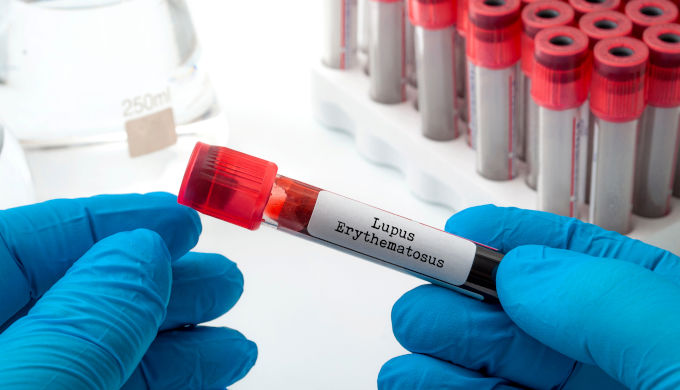Author: Lucy Piper
medwireNews: Neither rituximab nor belimumab significantly increase the risk for serious infection in patients with systemic lupus erythematosus (SLE) compared with the standard of care, researchers report.
They therefore propose that “when considering the risk of serious infection […] immunosuppressives, rituximab, and belimumab should be prioritised as mainstay therapies to optimise SLE management and support proactive minimisation of glucocorticoid use.”
Among 1048 patients with moderate-to-severe SLE from the British Isles Lupus Assessment Group Biologics Register, 76 experienced 118 serious infections in the 12 months following the initiation of rituximab (n=746), belimumab (n=119) or standard of care immunosuppressives (n=183).
The study participants had a median age of 39 years and 90% were women. The median disease duration was 2.7 to 9.6 years and the median baseline SLE Disease Activity Index 2000 score ranged from 6 to 12 points.
The overall crude incidence rate of serious infections, defined as those needing intravenous antibiotic treatment, hospital admission or resulting in morbidity or death, was 117.7 per 1000 person–years, report Ian Bruce (The University of Manchester, UK) and colleagues.
They highlight that the rate was similar across the three treatment groups, with 92 infections occurring in 8% of individuals taking rituximab, eight in 4% of those taking belimumab and 18 in 7% of those receiving standard of care.
The most common sites of serious infection were the respiratory tract in 35% of cases, the genitourinary tract in 18%, and the skin and soft tissues in 17%.
The researchers note that concomitant immunosuppressant use in 49% of patients receiving rituximab and 52% of those taking belimumab also did not increase the risk for infection.
“I[]ndeed, we noted a reduction in the serious infection risk in this group,” the researchers comment in The Lancet Rheumatology. Specifically, the risk was reduced by 40% per concomitant immunosuppressant. Similarly, concomitant use of cyclophosphamide with rituximab did not increase the risk for serious infection.
By contrast, glucocorticoids were the drug class most associated with serious infection risk, stress the researchers, and a prednisolone dose above 10 mg was a significant risk factor for serious infection in multivariate analysis, at a hazard ratio of 2.38.
The other factors that were significantly associated with increased risk for serious infection were multimorbidity – such as diabetes, hypertension, chronic kidney disease, cancer, stroke and asthma – and hypogammaglobulinemia (<6 g/L), with hazard ratios of 1.45 and 2.16, respectively.
The researchers say their data “strongly support the need to review the use of glucocorticoids as a mainstay drug in patients with SLE and we should prioritise other agents to optimise SLE management and reduce the overall burden of glucocorticoid exposure.”
In a related comment, Yann Nguyen and Nathalie Costedoat-Chalumeau, both from Université Paris Cité in France, agree that the study “raises several interesting points that might help physicians to further reduce the risk of serious infections in people with SLE,” including the use of conventional synthetic or biological disease modifying anti-rheumatic drugs to decrease daily glucocorticoid doses and the option of new treatment schemes without oral glucocorticoids.
However, they point out some limitations that should be taken into consideration, namely that the standard of care group was small and quite heterogenous, the number of serious infections was low, and as only infections in the first year of treatment were assessed, the real long-term infectious risk of some of the patients may not be reflected.
News stories are provided by medwireNews, which is an independent medical news service provided by Springer Healthcare Ltd. © 2023 Springer Healthcare Ltd, part of the Springer Nature Group
This independent news story was supported by an educational grant from L’Institut Servier, Suresnes, France.
Lancet Rheumatol 2023; 5: E284–E292
Lancet Rheumatol 2023; 5: E245–E246
Image Credits: © Victor Moussa / stock.adobe.com



